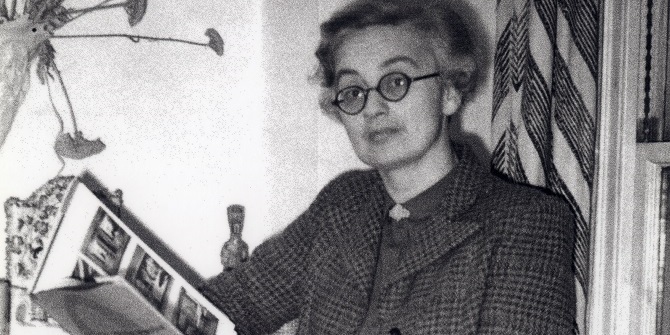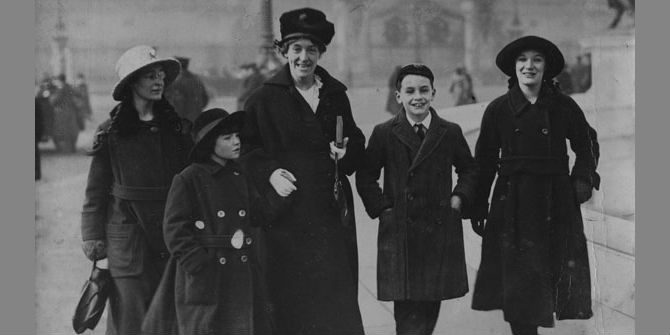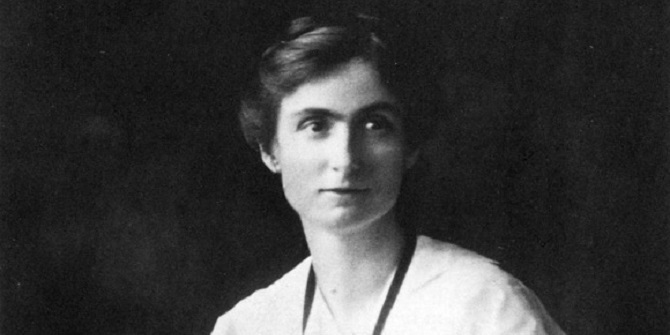In 1929, with American funding, LSE inaugurated the Diploma in Mental Health for social workers. Over the next 30 years the LSE course not only trained most of Britain’s psychiatric social workers, writes Jane Miller, but it had a hitherto unrecognised influence on the establishment of Australia’s neophyte social work profession.
In September 1945 Margaret Whale, a young Australian Red Cross social worker who had just arrived in England to join LSE’s Mental Health course, wrote to her boss in Melbourne:
Yesterday the course began and I can see that we are in for a treat. There are 58 students, 6 men 8 married women and the rest spinsters… 17 of us are to do our practical work at the Maudsley. I have Miss Shaw for Tutor. She has recently taken over from Miss Clement-Brown… . [1]
In December she had more to add:
Life at the Maudsley continues to be interesting. We learn a lot from the clinic we attend each week. We listen to the doctor interviewing the patient and then afterwards he explains the case. The coaching hour each week with Miss Ashdown is also a good experience. She is a most remarkable person. [2]
Three Melbourne Red Cross social workers had preceded Sydney-based Whale to England. In April 1944, a year before the end of World War II, Margaret Grutzner the daughter of a Victorian country doctor, and then Mernie Yeomans and Helen Clark from Melbourne, in September 1944, had also made the sea voyage to England to study Mental Health at LSE.
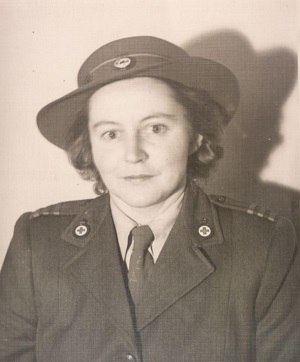
Australia was keen to access this mental health expertise, as shown in a letter from the Secretary General of Australian Red Cross Alfred Brown to make a special passport application (needed with war time travel restrictions) for Whale:
…the proportion of those discharged from the services on medical grounds whose disability is psychoneurotic in nature is high enough to make necessary specialised training in those who assist in their rehabilitation… the service of a social worker especially qualified to deal with psychiatric problems can help to ensure the successful resettlement into civil life of many men and women.
Under the direction of Dr John Newman Morris, the Chairman of the Australian Red Cross Society, these social workers would help to rehabilitate ex-service men and women, particularly those POWs who had suffered dreadful treatment in the Japanese camps and returned home suffering from what would now be called post traumatic stress.
The Diploma in Mental Health had been a new departure for British social work. In Psychiatric Social Work in Great Britain (1939-1962) English social worker Noel Timms (Diploma Mental Health 1955) [3] described it as “the first course within a British University which had the acknowledged aim of giving professional training in social work”. This course, funded and closely monitored by the American Commonwealth Fund (of the Harkness family), emphasised transfer of American social work expertise to Britain. By 1962 Timms estimated it had trained 73 per cent of British psychiatric social workers. [4]
I have been able to identify 11 Australian social workers who completed qualifications in Mental Health at LSE [5] between 1933 and 1955: Mary Noall (1933), Una Riall (1940), Mernie Yeomans (1945), Helen Clark (1945), Margaret Grutzner (1945), Margaret Whale (1946), Millie Mills (1948), Patricia Holmes (1950), Joyce Grant (1952), Lorna Hay (1955) and Joan Robertson (1955).
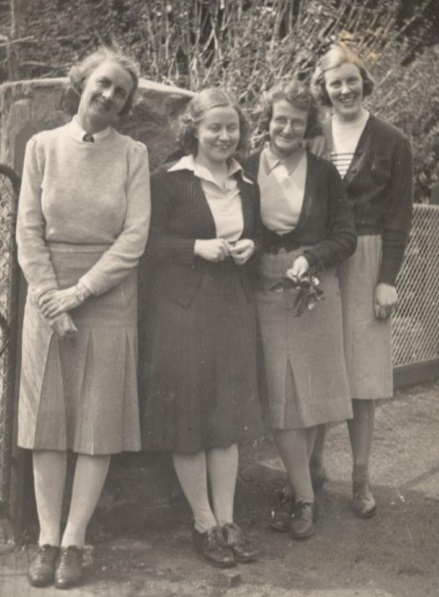
This small cohort of social workers made a disproportionate contribution to the profession in Australia. Most of them worked as supervisors in agencies, training newly graduated social workers, initially in the Australian Red Cross Society and later in various state psychiatric services as treatment of people with mental illnesses and intellectual disabilities improved and patients were discharged into the community. A number of them taught sessionally in university courses.
Lorna Hay had a long tenure at the University of Melbourne and Margaret Grutzner at the University of Sydney. Hay edited the national social work journal, Australian Social Work and Grutzner was on the founding executive of the Australian Association of Social Workers in 1946. Joyce Grant established the psychiatric social work department at Melbourne’s Royal Children’s Hospital where Australian psychiatrist Dr Winston Rickards, who had worked in Massachusetts General Hospital Boston, was introducing a new approach to child psychiatry on child guidance lines. Patricia Holmes helped to reform Victorian children’s welfare when the management of state wards in the Social Welfare Department moved from clerks to trained social workers. Joan Robertson inaugurated the social work department at the new (1953) Larundel psychiatric hospital in Melbourne.
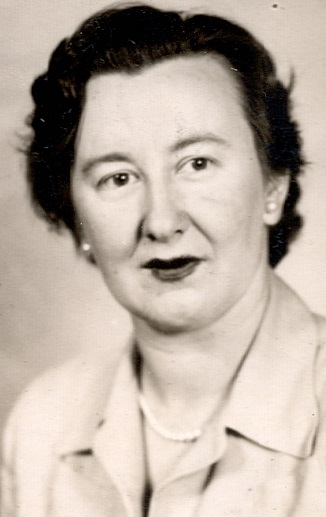
These women influenced key turning points in the social work profession in Australia. They and their supervisees also played an important part in introducing professional social work to the three states without social work training at the time.
While these numbers are small the influence these women exerted was significant because the social work profession in Australia was small. Professional social work had only commenced in Australia in 1929, 30 years later than in Britain, and the founding courses in Sydney and Melbourne did not become university courses until 1940. As late as 1954 there were less than 400 social workers employed in Australia. Adding to the problem of under-supply was the regular loss of the female social workers to marriage and child-rearing. [6]
I should also mention that two British Mental Health graduates made important contributions in Melbourne. Madeline Williams (1935) held senior roles in the state psychiatric system from the 1960s. However, the most remarkable of these graduates, Jocelyn Hyslop, one of the early Commonwealth fund scholarship holders (1932), founded the University of Melbourne social work course in 1934 and was the major influence in Australian social work education for its first decade.
The intensive practical experience described by Margaret Whale, and more typical of American than British social work education at the time, was exactly what Australian social work educators were looking for. It has had an enduring influence on social work in Australia.
Please read our comments policy before commenting
Footnotes
[1] M Whale LSE Mental Health Cert student to Marion Urquhart head of social work services Australian Red Cross Society 27 September, 1945. ARC Archives Series 33 Box 373 Section 4P Scholarships Psychiatric 1946.
[2] M Whale LSE Mental Health Cert student to Marion Urquhart head of social work services Australian Red Cross Society December 16, 1946. ARC Archives Series 33 Box 373 Section 4P Scholarships Psychiatric 1946.
[3] Noel Timms (1964) Psychiatric Social Work in Great Britain (1939-1962), Routledge and Kegan Paul, London, p18.
[4] Timms p23.
[5] There are probably more. As it is not possible to search the LSE student records by country of origin these names have been derived from research in Australia and cross-checking with the LSE Archives.
[6] R J Lawrence (1965) Professional Social Work in Australia, ANU, Canberra p168.


